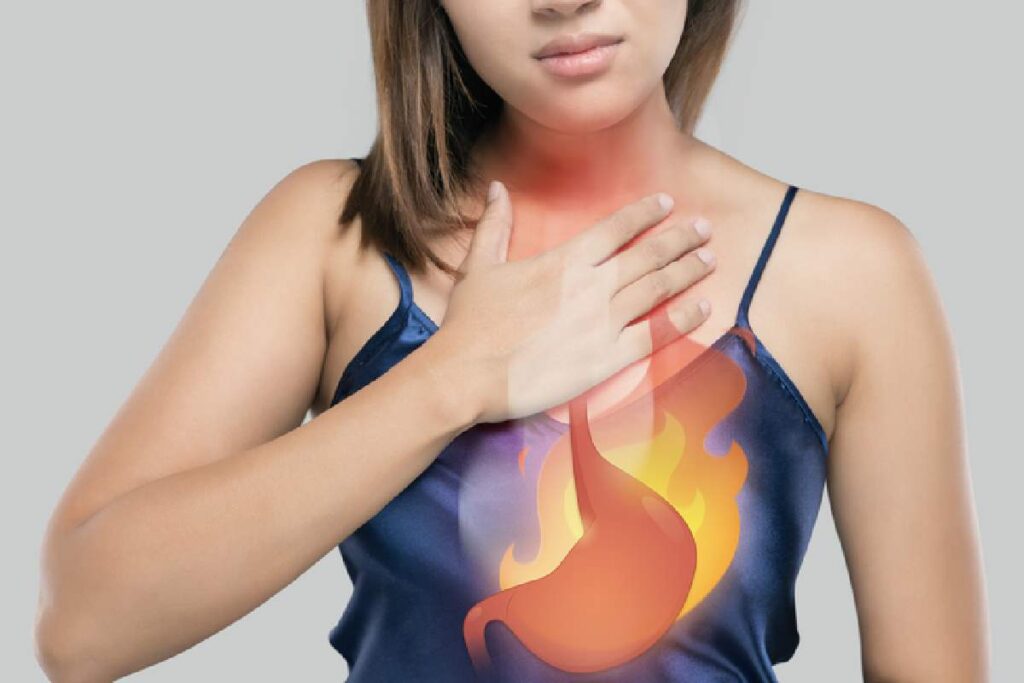Heartburn And Gastroesophageal Reflux: Stomach acid frequently rushes into the tube linking the mouth and stomach, causing gastroesophageal reflux (esophagus). Acid reflux can irritate the esophageal lining.
Many people regularly suffer from gastric reflux. Gastroesophageal reflux is mild acid reflux that occurs twice a week or moderate to severe acid reflux at least once a week.
In most cases, symptoms caused by GERD can be controlled with lifestyle changes or over-the-counter medications. However, some people with this condition may need stronger medications or surgery to relieve symptoms.
Table of Contents
Symptoms
Some of the More Common Signs and Symptoms of GERD are:
A burning sensation in the chest (heartburn) usually occurs after eating and may get worse at night
- Chest pain
- Difficulty swallowing
- Eructation of acidic foods or liquids
- A sense of lumping in the throat
If You Have GERD At Night, You Could Also Have:
- Chronic cough
- laryngitis
- Asthma problems for the first time or asthma that is getting worse
- sleep disorders
When To See A Doctor
See a doctor if you have chest pain right away, especially if you experience shortness of breath or pain in your jaw or arm. They can be signs and symptoms of a heart attack.
In the following situations, you should request an appointment with your doctor:
- You Have Severe Or Common Symptoms Of GERD. To Have
- You are taking over-the-counter heartburn medication more than twice a week
Causes
Heartburn And Gastroesophageal Reflux: Acid reflux causes gastroesophageal reflux disease (GERD).
The lower esophageal sphincter (a circular band of muscles encircling the lower oesophagus) relaxes as you swallow, allowing food and drink to pass into the stomach. Then the sphincter closes.
When the sphincter relaxes or weakens abnormally, stomach acid can rise the esophagus. The continual backwash of acid irritates and often inflames the esophageal lining.
Risk Factors
Some Diseases That Can Increase Your Risk Of GERD Include:
- Obesity
- Ball In The Upper Part Of The Stomach That Extends To The Diaphragm (Hiatal Hernia)
- Pregnancy
- Connective Tissue Diseases Such As Scleroderma
- Delayed Gastric Emptying
Factors That Can Worsen Acid Reflux Include:
- smoking
- Eat a lot of food or eat late at night.
- Eating certain foods (triggers) such as oily or fried foods
- Drinks like alcohol or coffee
- Are you taking certain medications, such as B. Aspirin
Also Read: Yoga for health
Complications
Over time, chronic inflammation of the esophagus can lead to complications, including:
Narrowing of the esophagus (narrowing of the esophagus). Damage to the lower part of the esophagus from stomach acid, which causes scar tissue to form. The scar tissue narrows the food path and causes difficulty swallowing.
An open wound in the esophagus (esophageal ulcer). Stomach acid can severely erode the tissues in the esophagus and cause an open injury. The ulcer in the esophagus can bleed, produce pain, and make swallowing difficult.
Precancerous changes in the esophagus (Barrett’s esophagus). Damage from the acid can cause changes in the tissue that lines the lower part of the esophagus. These changes are linked to an increased risk of esophageal cancer.

